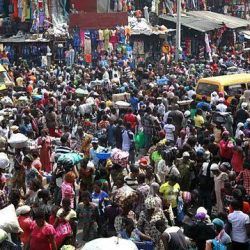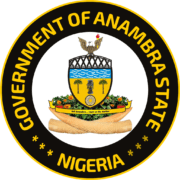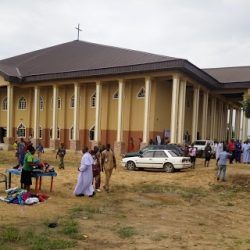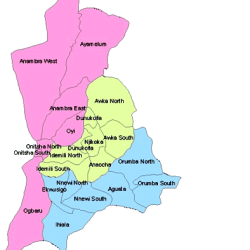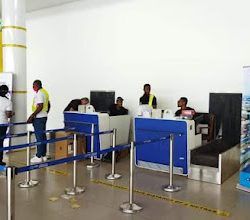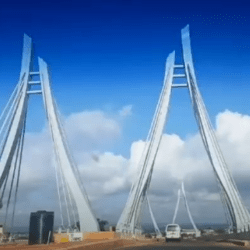Anambra is a state of rich history; great myths; giant strides; creative, hardworking and innovative people.

The diverse perspectives to the origin of Anambra and Ndi Anambra are as mythical as the great people.
Ndi Anambra are among the first set of God’s creation on Earth, who migrated from the cradle of human civilization to their present location.
The History of Ndi Anambra is strongly linked to the history of the entire Igboland, as Ndi Anambra are perceived as the source of Igbo Civilization.
Ndi Anambra existence dates as far back as 4500BC as confirmed by archaeological findings unearthed in various locations in the state, including Igbo Ukwu, Aguleri, Awka, Ezira and Nri.
The area today, known as Anambra State was created on August 27, 1991, along with eight other states of Nigeria by the then Military President, Ibrahim Badamasi Babangida GCFR. The state derives its name from Anambra River, which is a colonial convenient pronunciation of Omambala River. The River Anambra is a tributary of the majestic River Niger.
The natural features of Hills, Lakes, Caves, Forests, and table Savannah landform the beautiful landscapes of Anambra State.
Situated on a rolling flat savannah land, dotted by Hills, Lakes, Forests, and caves on the eastern plains of the River Niger, Anambra State covers an area of 4,416sq kilometers with rainforest vegetation, humid climate, a temperature of about 87°F, and rainfall of between 152cm and 203cm. Anambra State shares boundaries with Abia, Delta, Enugu, Imo, and Kogi States making it one of the few states in the country with many neighbors.
With an estimated population of about 5,084,195 (2015 Census estimate), Anambra is the tenth most populous state in Nigeria.
Agriculture is important in the state: oil palm, corn, rice, yam, and cassava are its main cash crops. Fishing in inland waterways is a significant commercial activity.
The principal minerals found in the state are gypsum, kaolin, bauxite, iron ore, and lead. Anambra state also has natural gas and crude oil. Major industries include breweries, textiles, tourism, and soft drinks bottling. Locally produced sculptures of wood and metal are also of commercial importance.
The economic climate is highly favourable with a combination of large markets, abundant skilled labour force, entrepreneurial ability and easy access to capital and natural resources. The state has a business environment that is conducive and a number of investment incentives.
The state capital territory, Awka, famous for its legendary blacksmithing, spans six Local Government Areas of Aniocha, Awka South, Awka North, Dunukofia, Njikoka and Orumba North. The Capital Territory covers a land area of 400sq kilometers.
The city of Onitsha has strong trade links with many parts of gthe country and the world. Its market is the largest in West Africa. Nnewi, the second most economically vibrant centre after Onitsha, has virtually become the automobile spare parts market of the nation and a fast-growing industrial centre.
The Igbo language is the mother tongue, but English is widely spoken due to the early influence of Missionary Schools & The Royal Niger Company Traders.
A vast majority speak pidgin, a mix of native Igbo dialect and the confluencing English Language, which was probably for ease of trade with visiting Europeans. However, a small group of Igala-speaking people exists in Anambra West Local Government Area. Ndi Anambra live and work in virtually every part of the country and easily learn the languages of their places of sojourn. They also integrate easily with the host communities where they find themselves. As a fallout of their friendliness and large-hearted nature, Ndi Anambra have very high regard for and are openly generous to strangers.
Indeed, the people are willing to go to great lengths to shower their well-known traditional hospitality on the visitors and strangers. Ndi Anambra are a people of uncommon species, shaped by history and environment to be tough, hardworking, creative, innovative and adventurous.
The people of Anambra State are perhaps its most outstanding assets and the reason why the State is regarded as ‘The Light of the Nation, Nigeria’. The story of Ndi Anambra is that of outstanding achievements in Politics, Education, Commerce, Industry, Entertainment, Sports and indeed every sphere of human endeavours.
The history of Africa and indeed the entire black race can never be told without the mention of outstanding sons and daughters of Anambra like: The great “Zik of Africa’, Rt. Hon Dr. Nnamdi Azikiwe, who played a key role in the emancipation of Africa and who is one of the founders of Modern Nigeria; Sir Louis Phillipe Odumegwu-Ojukwu , one of Africa’s earliest billionaires; Chief Mrs Margaret Ekpo (Margaret Obiasulor), Nigeria’s pioneer female politician, activist and leader; Professor Chinua Achebe, novelist, poet, professor and critic, whose first novel, “Things Fall Apart”, is considered the most widely read book in modern African Literature.
The never-ending list includes the First African Secretary-General of the Commonwealth, Chief Emeka Anyaoku; fiery pre and post-independence politicians like Chief Mbazulike Amaechi and Chief Mokwugo Okoye; and the First Vice President of the Federal Republic of Nigeria, Dr Alex Ekwueme, to mention but a few. Indeed, there is at least one ‘Onye Anambra’ in the top ten bracket of any area of human endeavor.
PAST GOVERNORS (4TH REPUBLIC)
1999 – 2022
- CHINWOKE MBADINUJU
- CHRIS NWABUEZE NGIGE
- PETER GREGORY OBI
- WILLIE OBIANO
Anambra
Anambra is a Nigerian State located in south-eastern part of the country.

Date created
27 August 1991
Capital
Awka
Area
4,844 km²
Anambra is bounded by Delta State to the west, Imo State to the south, Enugu State to the east and Kogi State to the north.
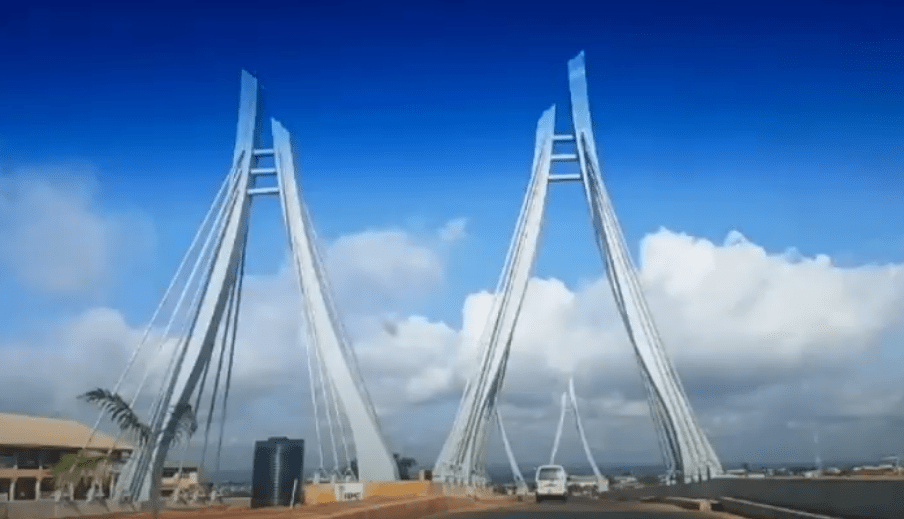



It has one of the highest population densities in Africa. The state comprises numerous thickly populated villages, a number of small towns and a few major towns; some areas are so thickly populated that the estimated density is 1500-2000 persons living within every square kilometer.
Most of the population is rural, although over the last two decades the rural-urban migration has stretched the meagre urban services to a breaking point. This pattern of human migration has posed serious problems for the state’s resources, fragile infrastructure, environmental sanitation, erosion control and social services. This pressure is especially evident in its huge commercial city of Onitsha.
Consequently, portable water, electricity and decent housing for the residents of Onitsha have become a luxury. The onerous task before the new government of Mr. Peter Obi is to reverse the decadence of the past and turn things around for the teeming population of Onitsha in particular and and the entire state generally.
Most of the population of Anambra State are members of the enterprising Igbo ethnic group who are renowned for their resourcefulness and spirit of entrepreneurship. The Anambra Igbo are ubiquitous and can be found in all nooks and crannies of Nigeria, as well as in virtually every region of the world. Wherever they find themselves, the entrepreneurial skills of the Igbo stand them out in all their fields of endeavor. Indeed, Anambra State is a very exciting place to visit by anyone who wants to experience the vibrance of authentic Africa.
HISTORY AND ADMINISTRATIVE DIVISIONS
Old Anambra State was created in 1976 from part of East Central State, and its capital was Enugu. Following further state creation in 1991, Anambra was divided into two states, Anambra and Enugu. Awka is the capital of Anambra State.
The main towns of Anambra state are Awka, Onitsha, Nnewi, Obosi, Ihiala, Ekwulobia (Aguata), Uli, Abagana.
Other significant communities include Ogidi, Aguleri, Umueri (Umuleri), Umuoba-Anam, Nmiata-Anam, Awkuzu, Nsugbe, Ichida, Alor and Atani. There are 21 local government areas in the state: Aguata, Awka-North, Awka-South, Anambra-East, Anambra-West, Anaocha, Ayamelum, Dunukofia, Ekwusigo, Idemili-South and Idemili-North. Others are Ihiala, Njikoka, Nnewi-North, Nnewi-South, Ogbaru, Onitsha-North, Onitsha-South, Orumba-North, Orumba-South, and Oyi.
EDUCATION
Anambrarians are a very educationally advanced people. Literacy rate in the state is comparatively high, and there is an abundance of well educated and skilled personnel in virtually all fields of endeavour. There are a number of institutions of higher learning including Nnamdi Azikiwe University in Awka; Anambra State University, formerly known as Anambra State University of Science and Technology (ASUTECH) Uli; Federal Polytechnic in Oko; Nwafor Orizu College of Education in Nsugbe; College of Agriculture, Igbariam (now incoporated into the Agricultural Sciences faculty of the state university). Hundreds of excellent primary and secondary schools exist in the cities and towns of the state. Primary and secondary school enrollment in the state is one of the highest in the country. Consequently, Anambra state has one of the the largest numbers of JAMB candidates seeking the limited higher education spaces in Nigeria’s tertiary institutions. A recent anomaly in the educational system is the drop in male enrolment, mainly in secondary schools. This is one of the educational problems currently being aggressively tackled by the state government.
- CHARLES CHUKWUMA SOLUDO, CFR
